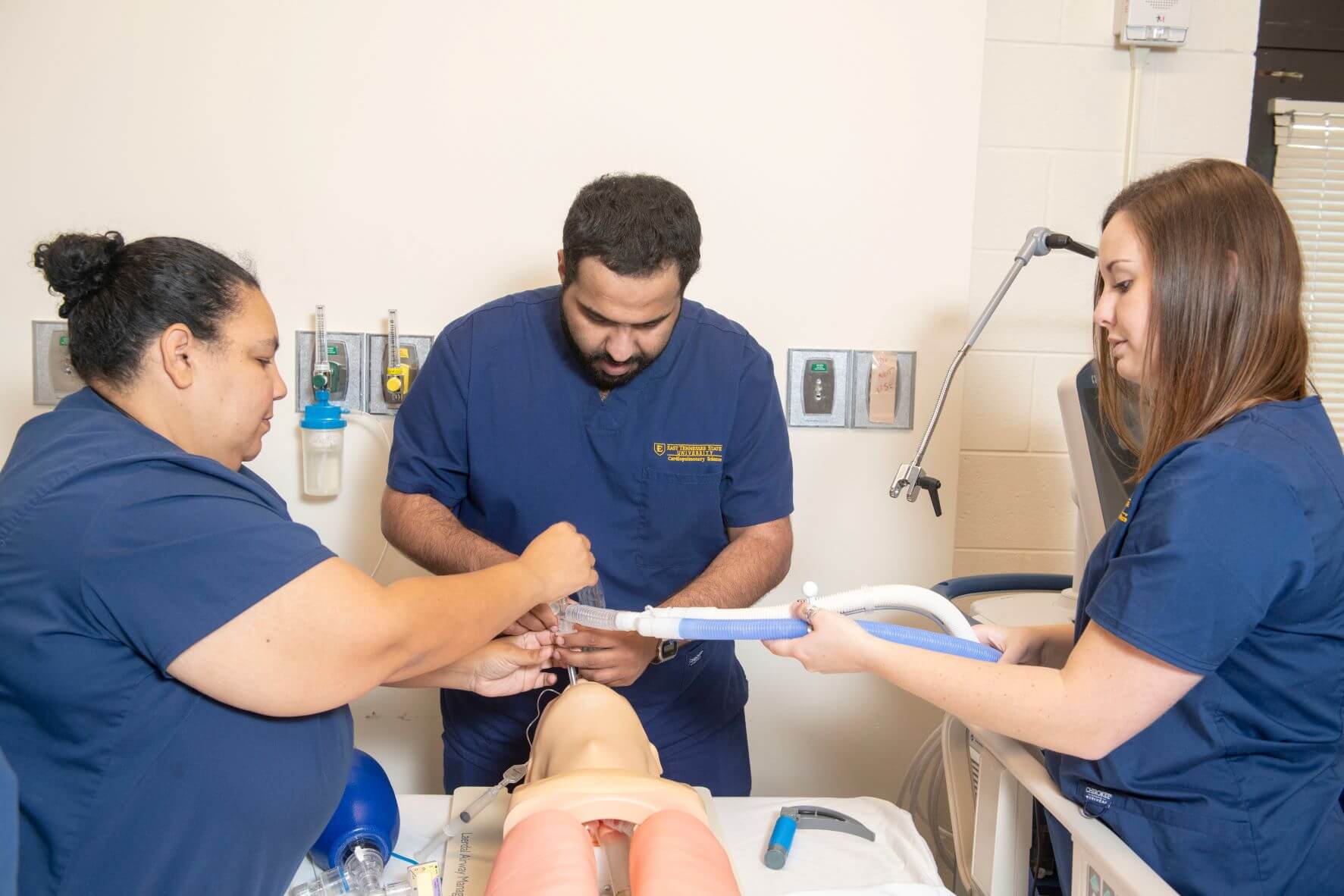The Respiratory Therapy program is a competitve entry major. Students must complete an application process and be accepted to be able to fully declare the Respiratory Therapy major. Students who are coming in as first-time freshman or transfer students are placed in an academic focus area called Health Professions Respiratory Therapy Interest (HPRT) until acceptance into the program.
Students will be in the health professions respiratory therapy interest (HPRT) academic focus area while they complete ETSU’s Compass Core requirements and prerequisites to the program.
The Respiratory Therapy program starts every fall semester and is 2 years, full-time,
and in-person. At the end of the program, students graduate with a Bachelor's Degree
in Respiratory Therapy, and are eligible to sit for the licensing exam. Once accepted
into the program, the Bachelor of Science degree in Respiratory Therapy integrates
cardiopulmonary didactic curriculum, laboratory courses, and clinical internship education
necessary for the advanced respiratory care practitioner.
Learn More About Applying to the Respiratory Therapy Program

Respiratory therapists provide care for patients with heart and lung problems such as asthma, chronic bronchitis, emphysema, cystic fibrosis
and sleep apnea, but also those experiencing a heart attack or suffering a stroke.
They perform diagnostic tests for lung capacity, administer breathing treatments,
record a patient's progress and consult with physicians and surgeons on continuing
care.
Program Goals
- Goal 1: To prepare graduates with demonstrated competence in the cognitive (knowledge), psychomotor (skills), and affective (behavior) learning domains of respiratory care practice as performed by registered respiratory therapists (RRTs).
- Goal 2: To prepare leaders for the field of respiratory care by including curricular content that includes objectives related to acquisition of skills in one or more of the following: management, education, research, advanced clinical practice.
This profession ranked #21 in "The 100 Best Jobs" and #16 in "Best Health Care Jobs" by U.S. News & World Report for 2018.
 The Respiratory Therapy program (#200398) is accredited by the Commission on Accreditation
for Respiratory Care: www.coarc.com CoARC accredits respiratory therapy education programs in the United States. To achieve
this end, it utilizes an 'outcomes based' process. Programmatic outcomes are performance
indicators that reflect the extent to which the educational goals of the program are
achieved and by which program effectiveness is documented. The programmatic outcome
is available through CoARC's outcomes webpage: https://coarc.com/students/programmatic-outcomes-data/
The Respiratory Therapy program (#200398) is accredited by the Commission on Accreditation
for Respiratory Care: www.coarc.com CoARC accredits respiratory therapy education programs in the United States. To achieve
this end, it utilizes an 'outcomes based' process. Programmatic outcomes are performance
indicators that reflect the extent to which the educational goals of the program are
achieved and by which program effectiveness is documented. The programmatic outcome
is available through CoARC's outcomes webpage: https://coarc.com/students/programmatic-outcomes-data/
Programmatic outcomes data reported on the CoARC website include:
- 3 year time period being reported
- RRT credentialing success
- Achievement of the high cut score on the TMC Exam (beginning 2018)
- Job placement
- Overall graduate satisfaction
- Overall employer satisfaction
- Total number of program enrollees
- Total number of program graduates
- Maximum annual enrollment
East Tennessee State University is accredited by the Southern Association of Colleges
and Schools Commission on Colleges (SACSCOC) to award baccalaureate, master’s, education
specialist, and doctoral degrees. East Tennessee State University also may offer credentials
such as certificates and diplomas at approved degree levels. Questions about the accreditation
of East Tennessee State University may be directed in writing to the Southern Association
of Colleges and Schools Commission on Colleges at 1866 Southern Lane, Decatur, GA
30033-4097, by calling (404) 679-4500, or by using information available on SACSCOC's
website (www.sacscoc.org).
 Campus-Wide Steam Shutdown
Campus-Wide Steam Shutdown